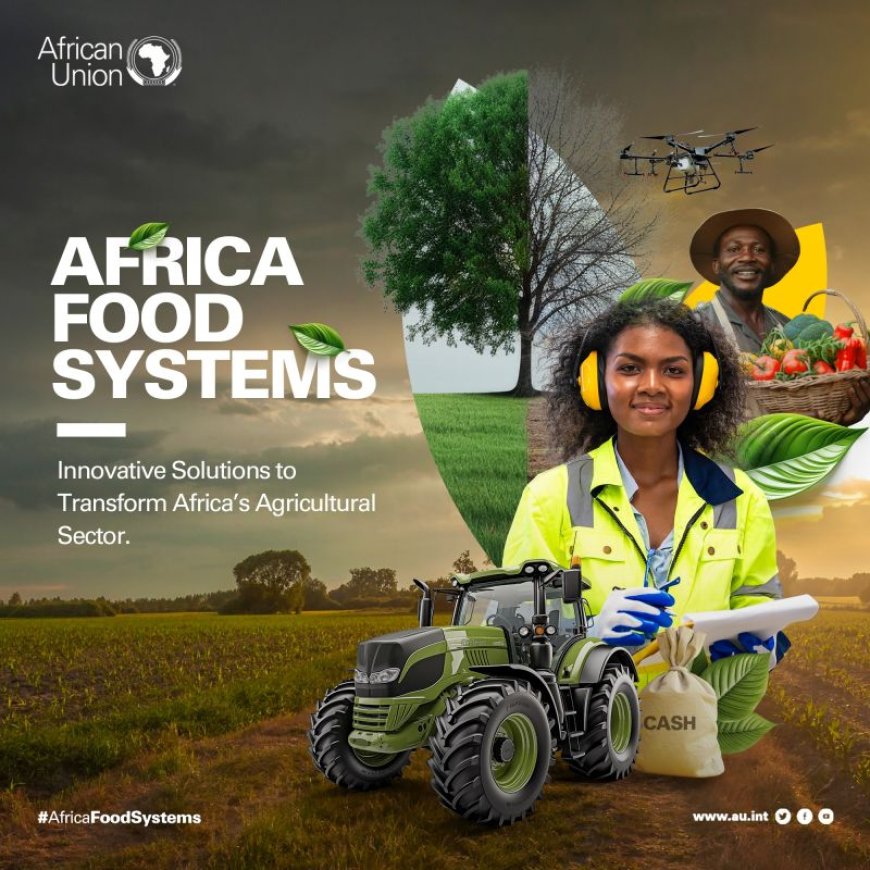Integrative Approaches to Combat Food Insecurity in Africa: Linking Agriculture and Education for Sustainable Growth
Discover how Africa is tackling food insecurity by integrating agriculture and education. Learn about CAADP, AfCFTA, and school feeding programs driving sustainable growth and development.

Food insecurity remains one of the most pressing challenges facing Africa today. With a growing population and the impacts of climate change threatening agricultural productivity, innovative and holistic solutions are urgently needed. One of the most promising strategies is the integration of agriculture and education, a dual approach that not only addresses immediate hunger but also fosters long-term sustainable development and economic growth.
The Role of Agriculture in Food Security
Agriculture is the backbone of Africa’s economy, employing over 60% of the population and contributing significantly to GDP. However, the sector faces numerous challenges, including low productivity, poor infrastructure, and limited access to markets. To address these issues, the African Union’s Comprehensive Africa Agriculture Development Programme (CAADP) has been a game-changer. CAADP urges African governments to allocate at least 10% of their national budgets to agriculture, a critical step toward achieving food security.
The CAADP Strategy and Action Plan (2026-2035) sets ambitious targets, including increasing agri-food production by 45% and reducing food wastage by 50% by 2035. These goals are not just about producing more food but also about creating efficient, sustainable food systems that can withstand the challenges of climate change and population growth.
Education as a Catalyst for Change
While agriculture provides the foundation for food security, education is the key to unlocking its full potential. School feeding programs are a prime example of how these two sectors can work together. These programs do more than just provide a meal; they serve as a catalyst for community development, economic empowerment, and generational transformation.
When children receive nutritious meals at school, they are more likely to attend classes regularly, perform better academically, and stay in school longer. This not only improves their individual prospects but also contributes to the overall development of their communities. Moreover, by sourcing food for these programs from local farmers, school feeding initiatives stimulate local economies and create a reliable market for smallholder farmers.
The African Continental Free Trade Area (AfCFTA): Boosting Intra-African Trade
The African Continental Free Trade Area (AfCFTA) is another critical component of Africa’s strategy to combat food insecurity. By reducing trade barriers and facilitating the movement of agricultural goods across borders, AfCFTA enhances market access for farmers and promotes regional integration. This not only boosts agricultural productivity but also ensures that food can move more efficiently from areas of surplus to areas of need.
A Comprehensive Approach to Food Security
The success of these initiatives depends on a comprehensive, multi-stakeholder approach. Effective governance, innovative financing mechanisms, and collaboration among governments, private sector actors, NGOs, and local communities are essential. The CAADP Strategy underscores the importance of such partnerships, emphasizing the need for coordinated efforts to achieve its goals.
The Long-Term Vision: A Food-Secure Africa
By prioritizing nutrition and integrating agricultural policies with educational initiatives, Africa can secure a brighter future for its children. A plate of food today shapes the thinkers, leaders, and innovators of tomorrow. Ensuring that no child goes to school hungry and that every learner has the nutritional foundation to reach their full potential is not just a moral imperative—it is an investment in the continent’s future.
The African Day of School Feeding, celebrated annually, highlights the importance of these programs in achieving food security and fostering development. It serves as a reminder of the need for continued investment in initiatives that link agriculture and education.
Conclusion
The integration of agriculture and education offers a powerful solution to Africa’s food insecurity challenges. By addressing immediate nutritional needs while fostering long-term economic and educational growth, these strategies pave the way for a food-secure and prosperous Africa. With the support of initiatives like CAADP and AfCFTA, and the commitment of governments and stakeholders across the continent, Africa can transform its food systems and ensure a sustainable future for generations to come.
For more information, visit: https://ow.ly/oNjE50Va1Xr
 Kinyarwanda
Kinyarwanda
 English
English









































































